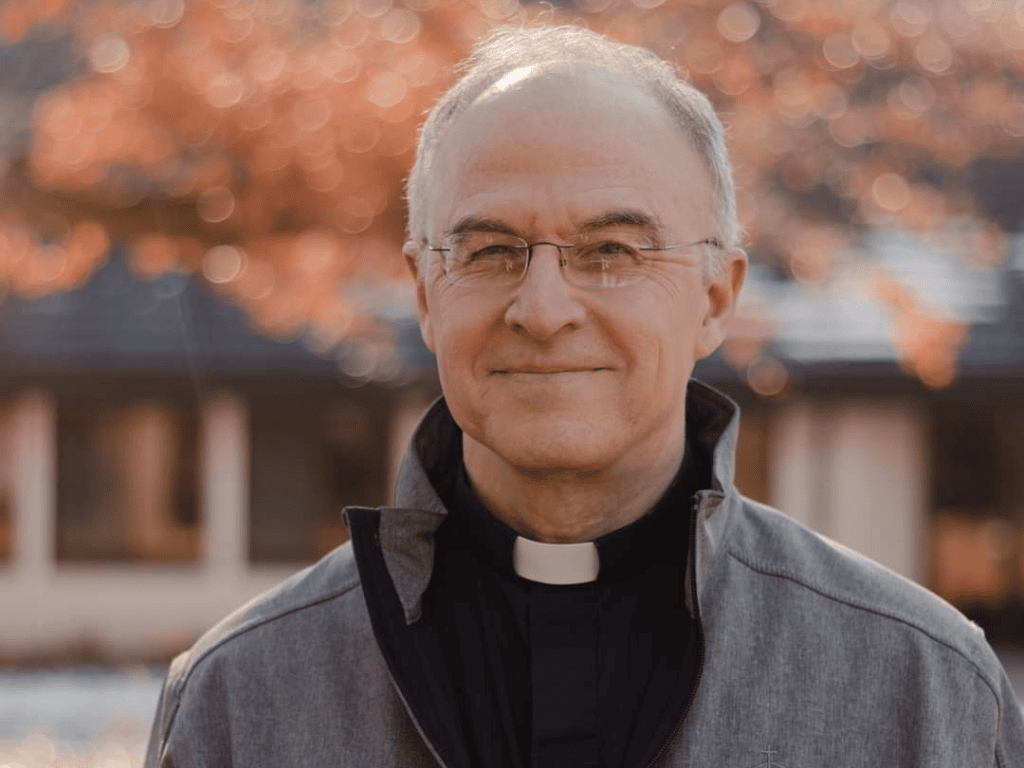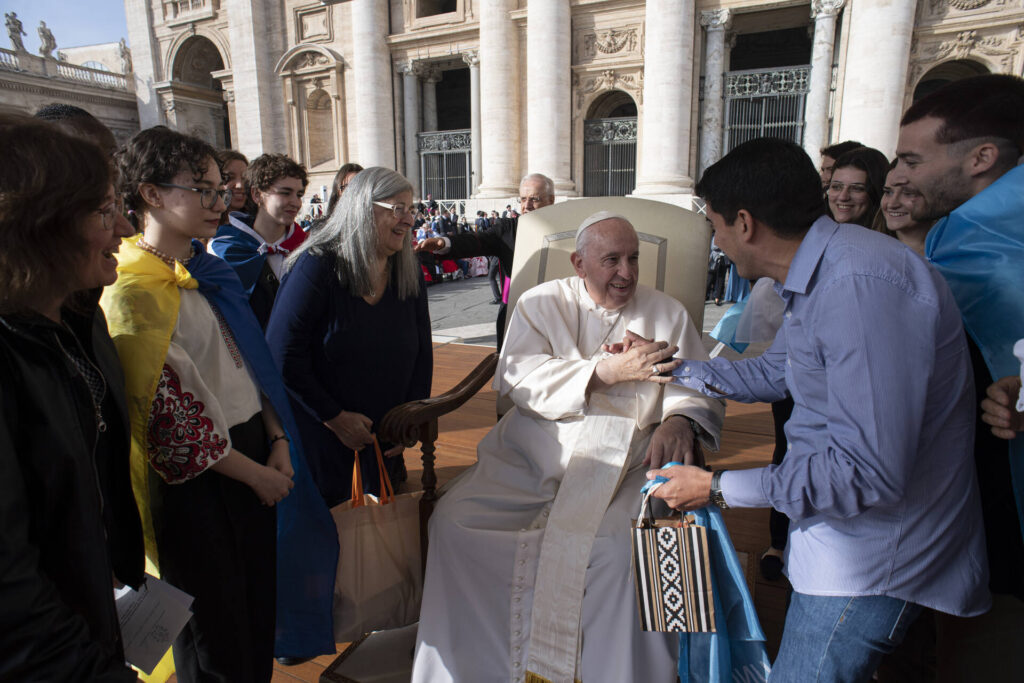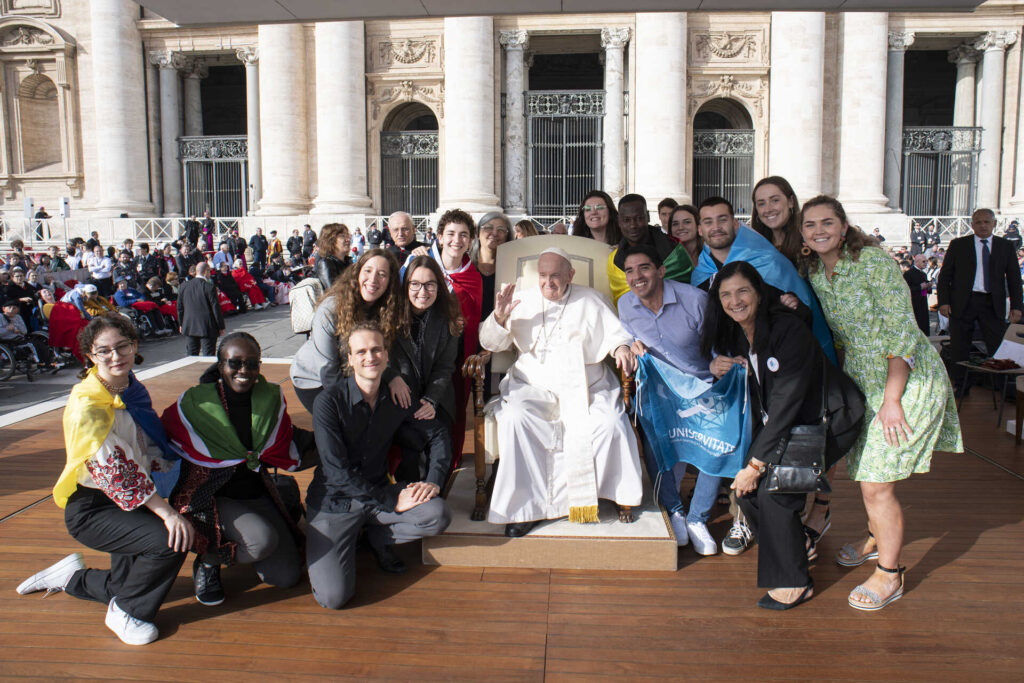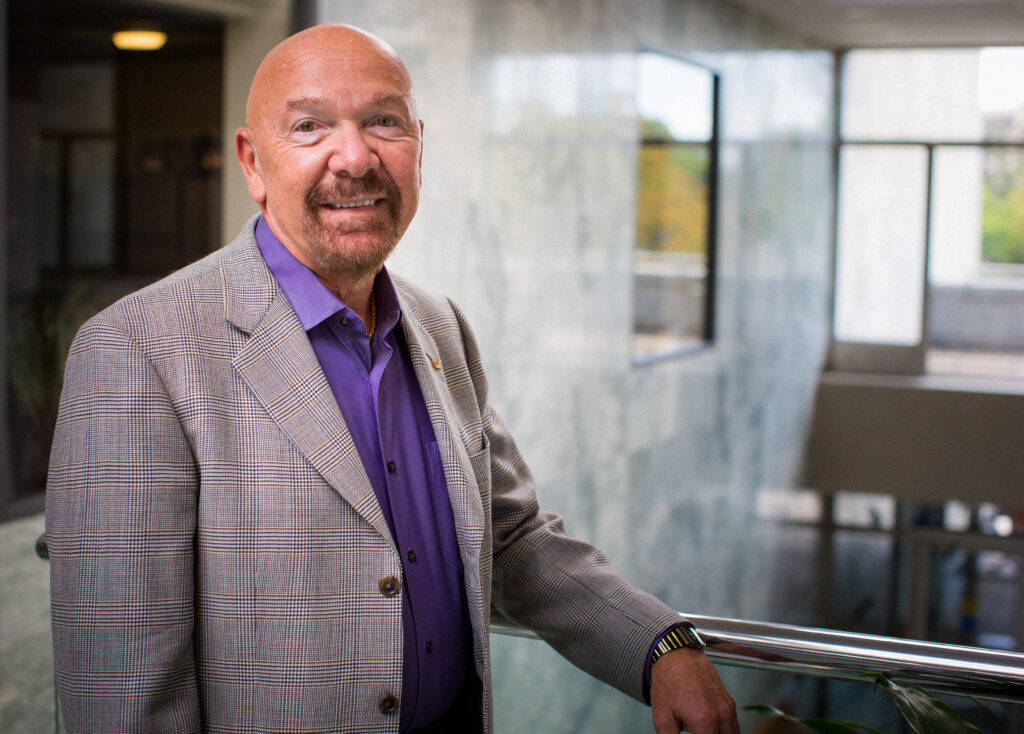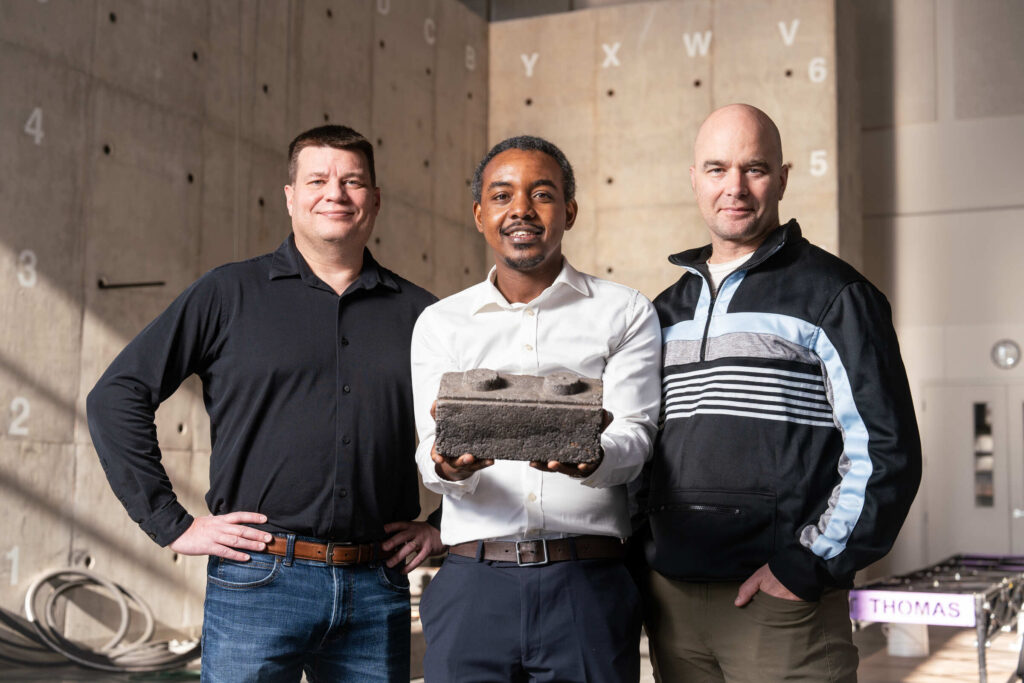Equipping priests for success means integrating ministry and leadership through ongoing formation.
Father Jim Livingston sits at his desk in Ham Lake, Minnesota, and glances at the stack of papers sandwiched between the Church of St. Paul’s wedding liturgy guide and the Rite of Christian Burial book. He started his day at breakfast with two parishioner couples, discussed some important internal topics with his parish staff, and hosted a local deanery meeting in the afternoon. He’s preparing for a funeral tomorrow and his homily at Mass this Sunday. He’ll celebrate Mass and hear confessions this evening.
And he somehow already found time to exercise, participate in the Liturgy of the Hours as every priest is required to do, and pray the 12-year – yes, that’s right – novena of St. Bridget he’s currently undertaking.
His life, Livingston says, is “challenging. But it’s life-giving.” It can also be isolating. But he isn’t doing this alone.
father Jim LivingstonIt’s challenging. But it’s life-giving.”
Priests like Livingston are stretched thin. A study by The Catholic Project revealed that half of diocesan priests in the U.S. have experienced at least one symptom of burnout.
Beyond the spiritual and pastoral roles for which they are trained, priests are often thrust into managerial and administrative duties – tasks they may not have learned during seminary. Many new priests spend years in associate pastor roles before becoming pastors, only to find the administrative skills they need are vastly different from their pastoral training.
External challenges can compound these issues. Many parishes face declining mass attendance or participation in the sacraments, and societal polarization can create additional tension within communities.
“If you’re the pastor trying to bring a community of believers together, you’ve got people that are at various places on the continuum,” said Mike Laughery, director of partner services at Twin Cities-based Emmaus Partners, formerly Catholic Finance Corporation. “How do you build community in that environment?”
Increased administrative responsibilities mean less time for what priests are called to do: ministering to their flocks. Overburdened pastors may struggle to balance their calling with the demands of leadership, leading to unhealthy coping mechanisms.
On top of that, the shadow of the clergy sexual abuse crisis has made the role of pastor even more challenging, casting a pall over priests who are faithfully living out their vocations.
But help is available.
Through The Saint Paul Seminary Institute for Ongoing Clergy Formation, priests like Livingston are equipped with vital leadership skills. Each year, the institute’s weeklong Pastor Workshop brings in leaders (like Laughery) from various fields to provide practical training from leadership to strategy to the nitty-gritty particulars of human resources and finance.
One such expert is Paul Hillen, the former chief marketing officer at Cargill who shares his extensive experience in strategic planning and leadership during the Pastor Workshop. Hillen emphasizes what he calls the “three Es” of leadership: envisioning a goal, enabling the resources to achieve it and energizing the people around you.
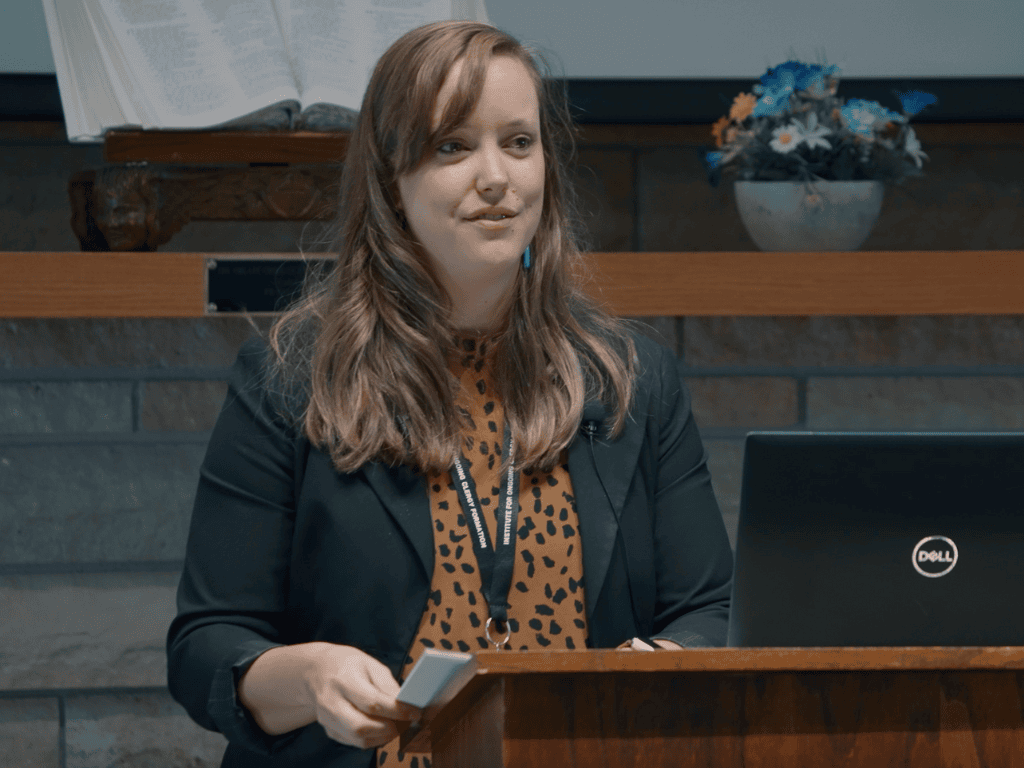
“Without strong priests,” says Hillen, currently a senior vice president at Heartland Food Products Group, president and chief strategy officer at the i.e. network, and a member of The Saint Paul Seminary Board of Trustees, “we don’t have a Church.”
Bailey Ziegler, director of human resources for the Diocese of St. Cloud, is another speaker at the institute’s workshops. She highlights the importance of solid HR practices in parishes.
“I think there’s this understanding that (the Church holds) not only the dignity of each human person, but also that the workplace is a place that dignity is really fulfilled,” Ziegler said. “Good management and human resources practices really should be aimed at that, primarily.”
Livingston says the tools gained from listening to people like Hillen and Ziegler have been transformative. He used them to craft a strategic plan for the Church of St. Paul emphasizing service, tithing, community-building and prayer. Livingston also has taken advantage of the seminary’s Shepherd’s Staff initiative, which pairs seasoned business leaders with pastors for one- on-one coaching and support.
Paul HillenWithout strong priests, we don’t have a Church.”
The needs of parishioners – and thus priests – continues to evolve. So the Institute for Ongoing Clergy Formation will evolve right along with them, director Deacon Dan Gannon says.
Experts in social media have presented on how its overuse is impacting younger generations. Pastors also have discussed ways to combat the effects of pornography on their parishioners and the people who care about them. Leaders in ministering to those with same-sex attraction or who identify as transgender coach priests on how to pastorally care for everyone in their community. The rise of AI and cultural movements like transhumanism, for example, will be addressed in future gatherings.
“We’re seeing a redefinition of the human person, not just by what I choose to call myself, but also what am I doing to my own body?” Gannon said.
“How do you handle that pastorally? These are the things we’re addressing.” But ongoing formation isn’t just about the external.
From June 30-July 26, Livingston was one of nine Minnesota priests to take part in the Alverna Priestly Renewal in Christ retreat, a partnership between The Saint Paul Seminary and St. Mary’s University of Minnesota. For a month, Livingston and his fellow presbyters focused on their own holistic growth – from pastoral, human and spiritual perspectives.
Livingston is one of more than 800 registrants expected at the Institute for Ongoing Clergy Formation’s 30 events planned in the next year. Plans are in motion to expand these offerings to dioceses throughout the Midwest and beyond, including an online learning platform with videos and digital resources so priests can sharpen their leadership skills any time, anywhere.
“I didn’t ask, nor did I deserve, to be born or baptized or called to the priesthood,” said Livingston, a Saint Paul Seminary alum who will celebrate his 35th ordination jubilee next year. “Everything I have is a gift from God. … I honestly feel helped in my life as a pastor here; I don’t feel like I’m alone. The (seminary) has been a big part of that.”
Editor's Note: A version of this story originally ran on The Saint Paul Seminary website, which is located at the University of St. Thomas.
